
Share Album:
Transparent Boundaries
Lori Laitman composer
Lee Hoiby composer
Andre Previn composer
Ned Rorem composer
Daron Hagen composer
Scott Gendel composer
Jamie-Rose Guarrine soprano
Seth Keeton bass-baritone
Karl Knapp cello
Lara Bolton piano
For centuries, writers have documented the awe brought about by the pristine wilderness and untamed expanses of the American Midwest and West. Three authors in particular—Ralph Waldo Emerson, Walt Whitman, and Emily Dickinson—beautifully documented the boundless optimism and sense of opportunity that the country’s vast natural resources inspired and heralded a new era of American thought.
On TRANSPARENT BOUNDARIES, the three visionaries’ words are set to music to give their poetic works musical life. Soprano Jamie-Rose Guarrine and bass-baritone Seth Keeton deftly lead the charge on a series of artsongs, accompanied by pianists Lara Bolton and Scott Gendel and cellist Karl Knapp.
Guarrine’s vocal elegance and innate lyricism naturally lend themselves to the vivid simplicity and inward reflection of Dickson, and Keeton’s lower register captures the direct ruggedness of Whitman. To express the duality of Emerson, the pair come together for a duo to capture the author’s ability to view all things at once in a single picture of beauty.
By adding to the repertoire of contemporary artsong, TRANSPARENT BOUNDARIES honors the legacy of historic writings and brings their sentiment back to the foreground of American thought, ushering in a newfound sense of hope and optimism for the 21st century.
Listen
Stream/Buy
Choose your platform
"Guarrine and Keeton connect with the authors' ability to synthesize all the words in the world into a single image: beauty."
Track Listing & Credits
| # | Title | Composer | Performer | |
|---|---|---|---|---|
| 01 | Beauty | Lori Laitman | Jamie-Rose Guarrine, soprano; Seth Keeton, bass-baritone; Karl Knapp, cello; Lara Bolton, piano | 4:49 |
| 02 | One Bee and Revery: No. 1, The Butterfly Upon | Lori Laitman | Jamie-Rose Guarrine, soprano; Lara Bolton, piano | 1:22 |
| 03 | One Bee and Revery: No. 2, Hope Is a Strange Invention | Lori Laitman | Jamie-Rose Guarrine, soprano; Lara Bolton, piano | 0:46 |
| 04 | One Bee and Revery: No. 3, To Make a Prairie | Lori Laitman | Jamie-Rose Guarrine, soprano; Lara Bolton, piano | 1:30 |
| 05 | 5 Poems of Walt Whitman "I Was There": No. 1, Beginning My Studies | Lee Hoiby | Seth Keeton, bass-baritone; Lara Bolton, piano | 1:52 |
| 06 | 5 Poems of Walt Whitman "I Was There": No. 2, I Was There | Lee Hoiby | Seth Keeton, bass-baritone; Lara Bolton, piano | 3:22 |
| 07 | 5 Poems of Walt Whitman "I Was There": No. 3, A Clear Midnight | Lee Hoiby | Seth Keeton, bass-baritone; Lara Bolton, piano | 2:46 |
| 08 | 5 Poems of Walt Whitman "I Was There": No. 4, O Captain! My Captain! | Lee Hoiby | Seth Keeton, bass-baritone; Lara Bolton, piano | 4:53 |
| 09 | 5 Poems of Walt Whitman "I Was There": No. 5, Joy, Shipmate, Joy! | Lee Hoiby | Seth Keeton, bass-baritone; Lara Bolton, piano | 1:26 |
| 10 | 3 Dickinson Songs: No. 1, As Imperceptibly As Grief | André Previn | Jamie-Rose Guarrine, soprano; Lara Bolton, piano | 3:09 |
| 11 | 3 Dickinson Songs: No. 2, Will There Really Be a Morning? | André Previn | Jamie-Rose Guarrine, soprano; Lara Bolton, piano | 1:25 |
| 12 | 3 Dickinson Songs: No. 3, Good Morning Midnight | André Previn | Jamie-Rose Guarrine, soprano; Lara Bolton, piano | 2:34 |
| 13 | 3 Calamus Poems: No. 1, Of Him I Love Day and Night | Ned Rorem | Seth Keeton, bass-baritone; Lara Bolton, piano | 4:02 |
| 14 | 3 Calamus Poems: No. 2, I Saw in Louisiana a Live-Oak Growing | Ned Rorem | Seth Keeton, bass-baritone; Lara Bolton, piano | 4:39 |
| 15 | 3 Calamus Poems: No. 3, To a Common Prostitute | Ned Rorem | Seth Keeton, bass-baritone; Lara Bolton, piano | 2:28 |
| 16 | On the Beach at Night | Daron Hagen | Seth Keeton, bass-baritone; Karl Knapp, cello; Lara Bolton, piano | 11:56 |
| 17 | To Keep the Dark Away: No. 1, Letter to the World | Scott Gendel | Jamie-Rose Guarrine, soprano; Karl Knapp, cello; Lara Bolton, piano; Scott Gendel, piano | 2:15 |
| 18 | To Keep the Dark Away: No. 2, The Saddest Noise | Scott Gendel | Jamie-Rose Guarrine, soprano; Karl Knapp, cello; Lara Bolton, piano; Scott Gendel, piano | 3:33 |
| 19 | To Keep the Dark Away: No. 3, In Vain | Scott Gendel | Jamie-Rose Guarrine, soprano; Karl Knapp, cello; Lara Bolton, piano; Scott Gendel, piano | 1:48 |
| 20 | To Keep the Dark Away: No. 4, Accustomed to the Dark | Scott Gendel | Jamie-Rose Guarrine, soprano; Karl Knapp, cello; Lara Bolton, piano; Scott Gendel, piano | 4:01 |
| 21 | To Keep the Dark Away: No. 5, The Crickets Sang | Scott Gendel | Jamie-Rose Guarrine, soprano; Karl Knapp, cello; Lara Bolton, piano; Scott Gendel, piano | 1:38 |
| 22 | To Keep the Dark Away: No. 6, I Sing to Use the Waiting | Scott Gendel | Jamie-Rose Guarrine, soprano; Karl Knapp, cello; Lara Bolton, piano; Scott Gendel, piano | 3:16 |
BEAUTY
text by Ralph Waldo Emerson
ONE BEE AND REVERY
text by Emily Dickinson
I WAS THERE: FIVE POEMS OF WALT WHITMAN
text by Walt Whitman
THREE DICKINSON SONGS
text by Emily Dickinson
THREE CALAMUS POEMS
text by Walt Whitman
ON THE BEACH AT NIGHT
text by Walt Whitman
TO KEEP THE DARK AWAY
text by Emily Dickinson
Recorded July 30 - Aug 3, 2018 at Wild Sound Recording Studio in Minneapolis MN
Recording Session Engineer Steve Kaul
Financial support was provided by the Office of the Vice Chancellor for Research and Engagement, University of Massachusetts Amherst. Additional financial support was provided by the University of Utah and the University of Utah’s College of Fine Arts.
Executive Producer Bob Lord
Executive A&R Sam Renshaw
A&R Director Brandon MacNeil
A&R Jacob Smith
VP, Audio Production Jeff LeRoy
Audio Director Lucas Paquette
VP, Design & Marketing Brett Picknell
Art Director Ryan Harrison
Design Edward A. Fleming
Publicity Patrick Niland, Sara Warner
Artist Information
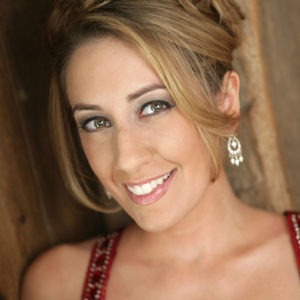
Jamie-Rose Guarrine
Soprano Jamie-Rose Guarrine is acclaimed for her “utterly thrilling, agile voice” and praised for bringing “pathos, beauty, and heartbreaking skill” to her performances. She has performed on the stages of Los Angeles Opera, Minnesota Opera, The Santa Fe Opera, Opera Philadelphia, Chicago Opera Theater, Austin Opera, Utah Opera, Fort Worth Opera, the Madison Symphony, the Saint Paul Chamber Orchestra, the Santa Fe Chamber Music Festival, The National Symphony Orchestra of Costa Rica, and the Santa Fe Symphony, among many others.
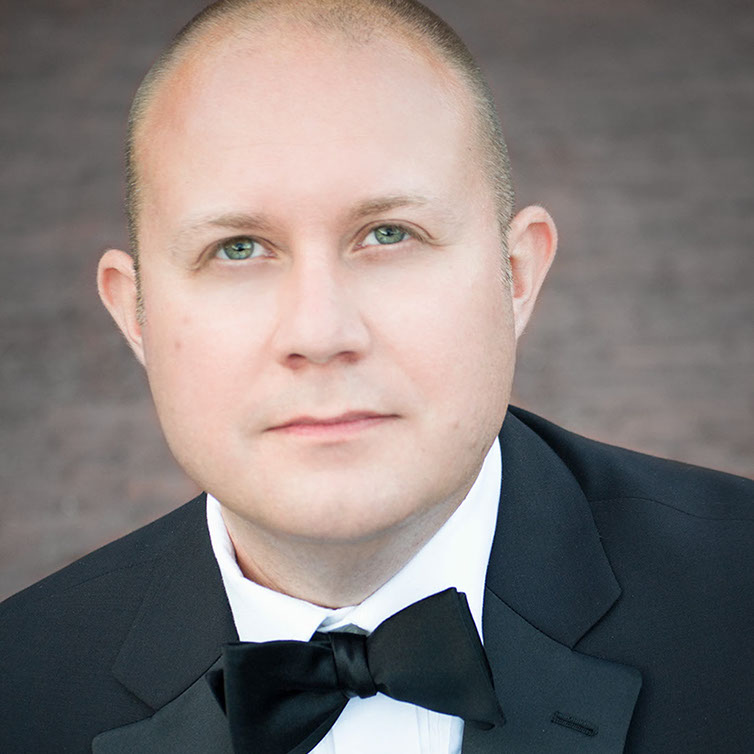
Seth Keeton
Bass-baritone Seth Keeton’s performances have been described by The New York Times as “driven” and “emotionally pointed,” and “stentorian” by Opera News. He has performed roles on opera stages throughout the country and Europe.
Lara Bolton
Lara Bolton is a pianist, vocal coach, conductor, and arranger. Her work spans many different genres, including classical, rock, jazz, and musical theater. In addition to maintaining an active concert and recording career, she serves on the faculty at the University of Minnesota.
Karl Knapp
Karl Knapp is known not only as a devoted Suzuki educator but also for his solo and chamber music performances. He recently served as Principal Cellist with the Fairbanks Symphony Orchestra, the Arctic Chamber Orchestra, and the Juneau Symphony Orchestra. Knapp performs extensively with his band 1200 Horsehairs: A Band of Cellos.
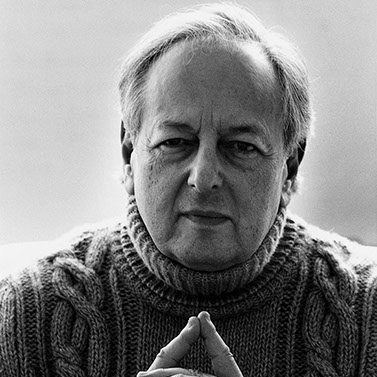
Andre Previn
photo: Lillian Birnbaum, Deutche Gramaphone
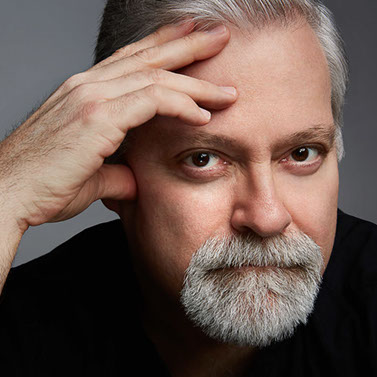
Daron Hagen
photo: Karen Pearson
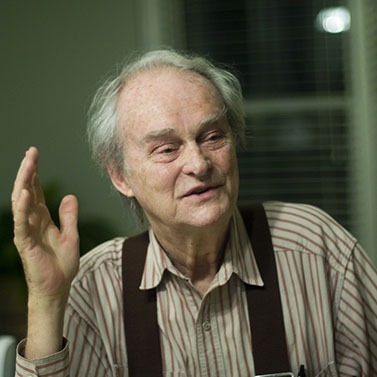
Lee Hoiby
photo: The estate of Lee Hoiby at LeeHoiby.net
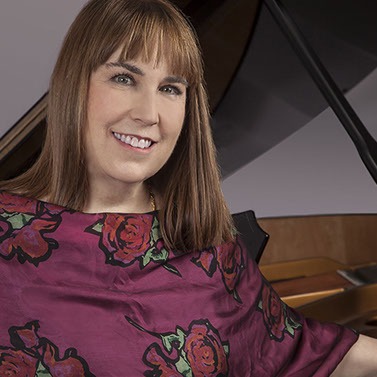
Lori Laitman
photo: Christian Steiner
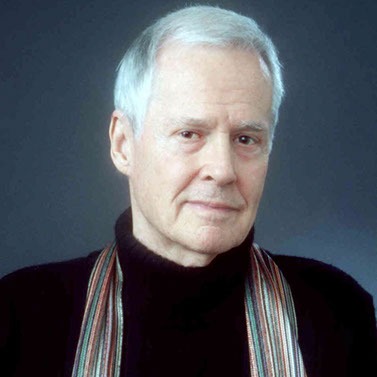
Ned Rorem
Notes
In 1844 the United States shimmered with possibility. Vast expanses of the American Midwest and West were completely untouched by European hands, unseen by explorers’ eyes. The land was in its natural state, and the great majority of our young country provided the magnificence that we experience today in our national parks. A boundless optimism pervaded the American psyche, and this sense of optimism and opportunity was in large part due to the natural bounty and vastness the continent afforded.
It was this year that Ralph Waldo Emerson wrote an essay entitled The Poet, a paper and lecture that would have a profound influence on American poetry and American thought. In it, he called for a new American voice of poetry befitting the greatness of the vast landscape. As Dan Chiasson writes in The New Yorker, “He provided, for the wild synaptic activity of his protégés, the framework.”
In answer to The Poet, Walt Whitman began his literary relationship with Emerson by mailing him a copy of Leaves of Grass in 1855. And in parallel, the teenager Emily Dickinson was forming friendships and accruing life experience that would mold her relationship to life and poetry. Their poetry has been an inspiration for dozens of composers of art songs throughout the years, and continues to be a source of inspiration in the 21st Century. Whitman in his directness of language that is at once rugged, sensual, cosmic, and direct; and Dickinson in her interiority, simplicity, vividness, and immediacy.
The inspiration for this project was a desire for each singer to perform the words of Dickinson and Whitman, with Jamie-Rose’s elegance and lyricism matching Dickinson’s poetry and Seth’s declamatory directness for Whitman’s. We added to the canon of art song by commissioning works by modern composers Scott Gendel and Daron Hagen on the words of Dickinson and Whitman. To bring unity to the program we commissioned a vocal duet by Lori Laitman for performance by all of the musicians on words from Emerson’s essay.
With the crushing daily news about climate change, rainforest deforestation, and the exploitation of natural resources, those of us who are artistically-minded frequently turn to artists’ celebrations of nature. The words of Emerson that Lori Laitman set resonate hope in times like these: “Wherever snow falls, or water flows, or birds fly, wherever is danger, and awe, and love, there is Beauty….”
